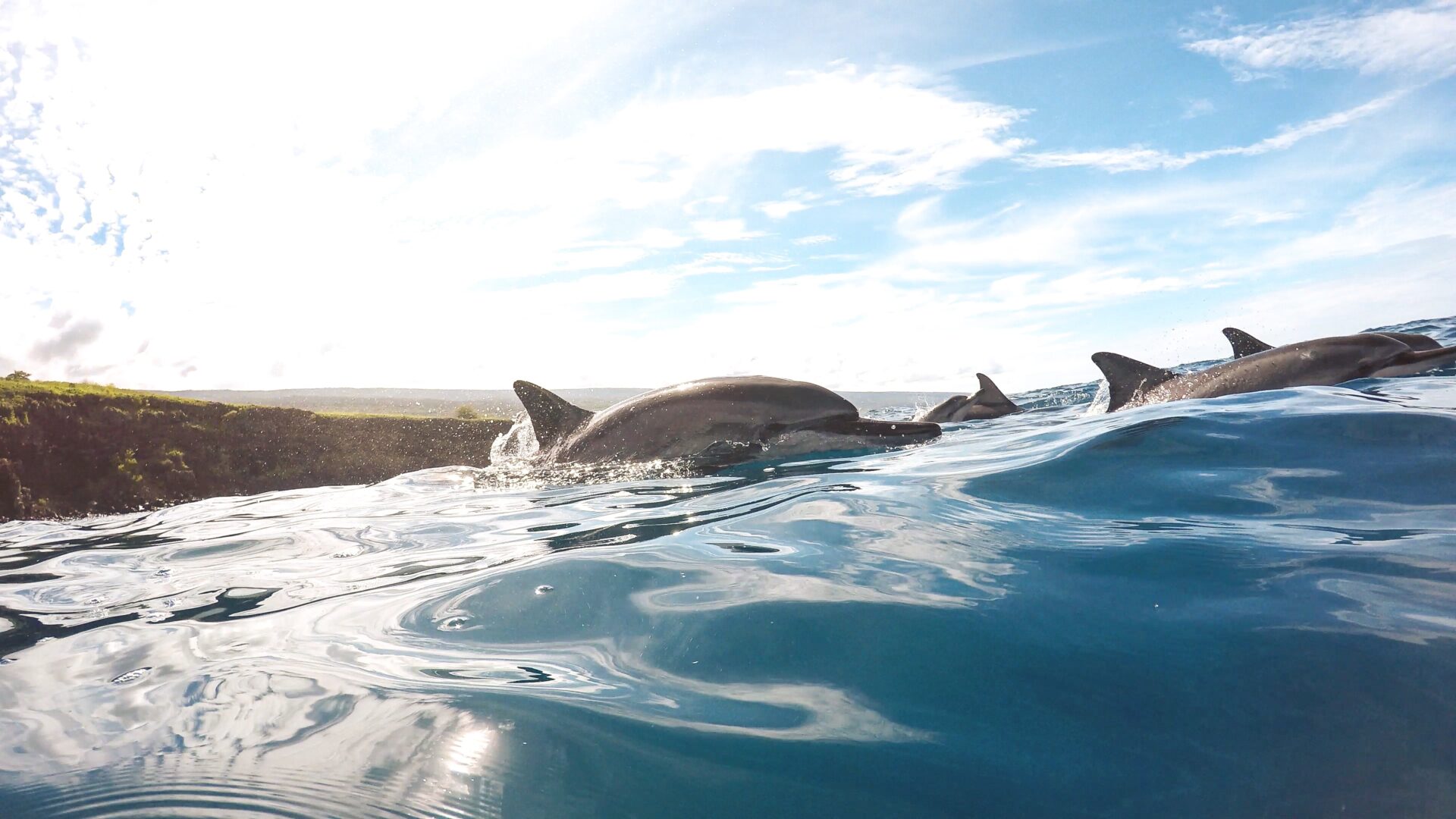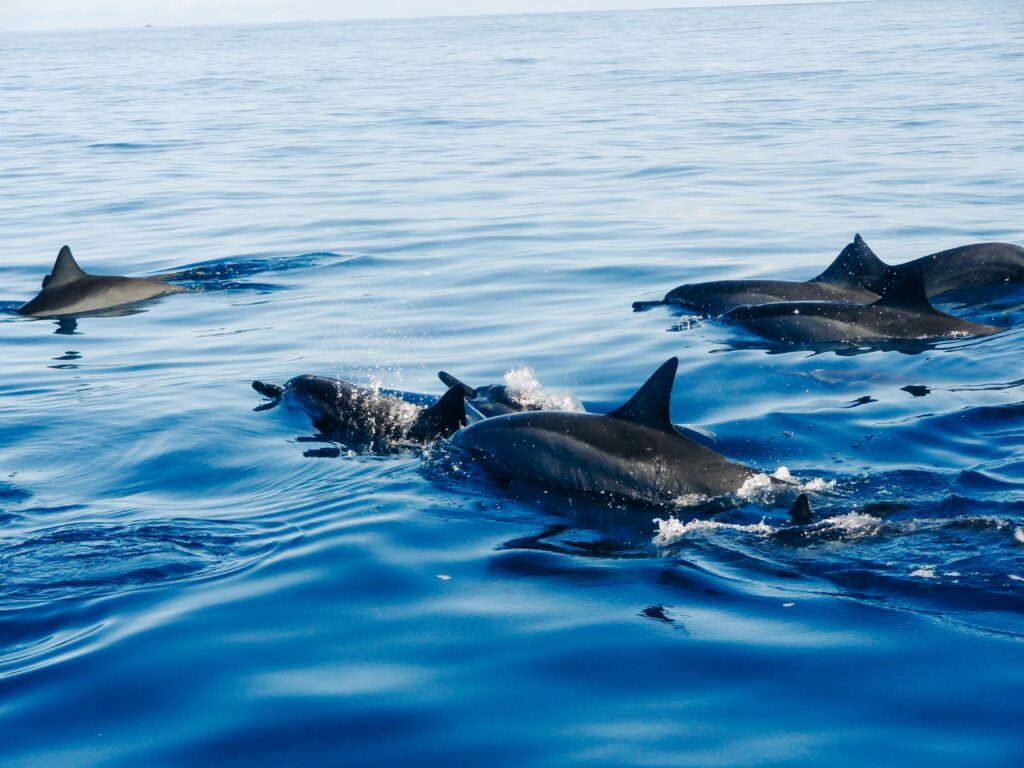
Written by Casey Willson, Communications Coordinator and Researcher at Don’t Cage Our Oceans. As a member of the Don’t Cage Our Oceans coalition, OPS hopes to help shed light on the reality that not all aquaculture is created equal as well as the harmful effects industrial fish farming has on marine mammals and endangered species.
The wonders of our ocean are a source of awe and inspiration, but they also harbor delicate ecosystems and marine mammals that face unprecedented threats. One such threat is Offshore Fish Farming (OFF), the practice of farming fish on an industrial scale, offshore, and far away from the regulatory bodies that provide oversight and public scrutiny. From bottlenose dolphins to critically endangered species like Hawaiian monk seals and North Atlantic Right Whales, marine mammals are at risk due to the detrimental effects of these fish farms. It is important to understand the profound impacts of offshore fish farming on marine mammal populations and advocate for a full ban on these floating factory farms to safeguard our precious ocean residents.

The Attraction and Consequences
Offshore fish farms deploy large net pens crammed with fish, creating an artificial abundance of prey around their structures. As a result, marine predators, such as bottlenose dolphins, are drawn to these farms in search of an easy meal. This shift disrupts their normal social behavior with potential longterm effects.
A March 2023 study found that nearly a quarter of Hawai’i Island’s resident bottlenose dolphin population have been identified interacting with a finfish farm off the Kona coast. There are concerns that these dolphins are becoming more solitary as they adapt to interacting with and feeding directly from the farms, potentially altering their social dynamics and long-term survival prospects.
Unfortunately, the impacts aren’t limited to just bottlenose dolphins. The Kona-based fish farm is also close to one of the nocturnal Hawaiian spinner dolphins resting areas. Sadly, there has been repeated documentation of aggression towards resting spinner dolphins from the bottlenose dolphins who frequent the fish farm. This has led to the spinner dolphins appearing to have abandoned the resting area altogether. All of these aggressive encounters have taken place since the fish farm was installed.
Entanglement and Fatal Encounters
Perhaps the most alarming consequence of offshore fish farming is the entanglement of marine mammals in the farms’ infrastructure. Trapped in ropes and nets, marine mammals face life-threatening situations. Tragically, since 1990, at least 24 bottlenose dolphins have lost their lives due to entanglements with fish farm equipment, as well as monk seals, and whales.
The Plight of Endangered Species
Offshore fish farming proves especially perilous for already endangered marine mammal species. The critically endangered Hawaiian monk seal, with an estimated 1,500 individuals remaining, faces heightened risks due to its small population size and sensitivity to additional stressors. The tragic death of a ten-year-old Monk Seal trapped in the nets of the NOAA-funded Blue Ocean Mariculture fish farm underscores the urgent need for more scrutiny.
Similarly, the critically endangered North Atlantic Right Whale is on the brink of extinction, with only 336 individuals remaining. A juvenile Right Whale’s death after becoming entangled in aquaculture gear in the Western North Atlantic Ocean serves as a stark reminder of the perilous situation these magnificent creatures face.
Proposed offshore fish farming projects in vital habitats, like the Gulf of Mexico for the endangered Rice’s Whales, further heighten the risks of entanglement and habitat disruption for these already vulnerable species.
The urgent need to protect marine mammals from the adverse effects of offshore fish farming cannot be overstated. Bottlenose dolphins, Hawaiian monk seals, North Atlantic right whales, and countless other species face a perilous future unless we act decisively.
By raising awareness, advocating for responsible practices, and supporting sustainable alternatives, we can collectively make a positive impact on marine mammal conservation. Together, we can ensure that future generations inherit a thriving and diverse ocean, rich with the beauty of marine mammals, for years to come.
Help protect marine mammals by preventing the expansion of offshore fish farming. To learn more go to DontCageOurOceans.org and take action.